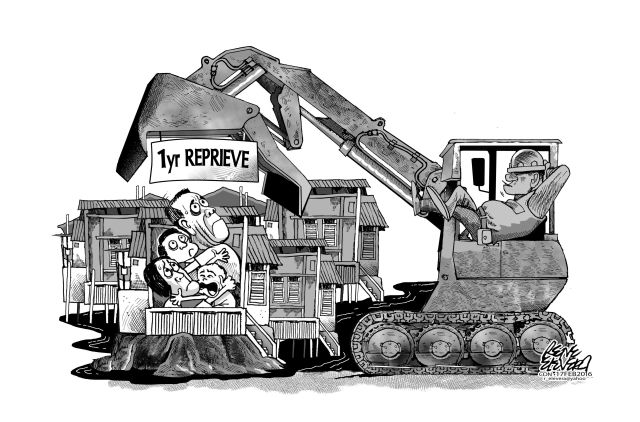
Try as they might, the Cebu City Council simply cannot pass the ordinance that would impose a one-year moratorium despite those rallies by militant groups and the emotional outburst of its author, Councilor Alvin Dizon and the urban poor groups who felt let down by its rejection.
With Cebu City Mayor Michael Rama out of the picture temporarily due to his two-month suspension, it fell on then acting Mayor Edgardo Labella to decide whether or not to toe the line set by the mayor or do an about-face and approve the ordinance.
Labella wasn’t about to break form and he expressed his reluctance to pass the ordinance that he said would run counter to the Urban Development and Housing Act or UDHA, a law which militant leftist groups perceive as only delaying the inevitable demolition of the homes of the urban poor.
The problem of informal settlers has grown significantly in Metro Cebu, specifically in Cebu City where the province and the Church still own large tracts of lands because there had been little to insignificant growth in the countryside.
Giving a one-year moratorium on demolitions would not only encourage the influx of people from the countryside who can ill-afford to support themselves and thus squat in some private or public land, it would also enable them to dig in their heels and refuse to move out even when the property owner’s right to their own lands are upheld in court.
Being an urban poor advocate before being elected into the City Council, Dizon claims that he consulted with a lot of lawyers, including Liberal Party vice-presidential candidate Leni Robredo who supported his position for a one-year moratorium on demolition.
The ordinance puts pressure on the Cebu City government to provide socialized housing to these settlers, not a few of whom can afford to rent a house or live with families in the province or even build one of their own.
Does the ordinance solve the problem of squatting in Cebu City? Again, likely not since it encourages more settlers to encroach on areas either privately-owned or owned by the government or those that are classified as “danger zones” which are riverbanks and near coastal areas prone to flooding and landslides.
How far does the responsibilities of local governments go as far as providing housing is concerned? Is there any country in the world that can afford to provide universal free housing to their poor and if so, can Cebu City Hall afford to do so after having obligated itself to providing cash assistance to its seniors, high school graduates and persons with disabilities (PWDs)?
There is an urgent need to provide suitable relocation sites for the urban poor who despite their plight aren’t justified to occupy danger zones which are beyond the commerce of man and should be spared of any pollution or settle down in areas that are privately-owned and titled.